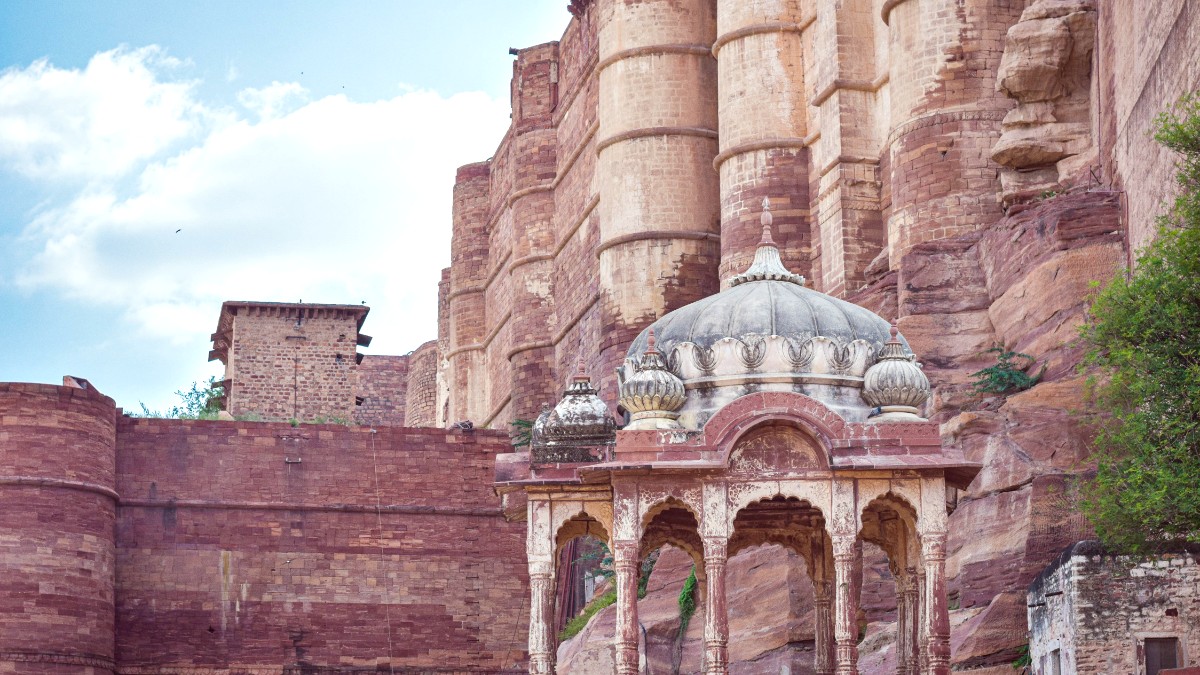
Rajasthan, India
This color choice, once associated with Brahmins, now defines much of the old city's charm. It presents a cool, calming contrast to the desert heat and provides an unique backdrop for your travels.
Jodhpur sits on the edge of the Thar Desert, a setting shaping its climate, architecture, and way of life.
This strategic position made Jodhpur a historical crossroads for trade routes connecting Delhi to Gujarat and the Arabian Sea.
Jodhpur's history dates back to 1459 AD, when Rao Jodha, a Rathore Rajput ruler, founded the city. He shifted his capital from nearby Mandore to this new, strategically superior site, building Mehrangarh Fort.
Jodhpur prospered as a center for trade in opium, copper, silk, sandals, and spices. Its strategic location on the Delhi-Gujarat trade route brought immense wealth and cultural exchange.
Powerful clan ruling the Marwar kingdom for centuries.
Periods of independence and alliance shaped architecture.
Rulers supported city's palaces, temples, stepwells.
Modern administration arrived, princely character retained.
Marwar kingdom merged with Union of India.
The city survived numerous battles and sieges. Mehrangarh Fort is a testament to its resilience.
The royal family continues to reside in part of Umaid Bhawan Palace, maintaining a connection to the city's storied past.
A long history of powerful rulers, strategic importance, and cultural patronage defines Jodhpur's identity today.
Visitors find a tangible link to India's royal heritage in Jodhpur.
The city's most prominent feature is Mehrangarh Fort, a formidable structure with commanding views of the "Blue City" below.
Within its walls, you find exquisite palaces, courtyards, and a museum displaying royal artifacts. Near the fort sits Jaswant Thada, a serene white marble memorial.
The city's commercial heart, centered around the iconic Ghanta Ghar (Clock Tower).
Rich, vegetarian Marwari cuisine with bold flavors and unique preparations.
A grand royal residence partly converted into a hotel, with a museum section.
Explore the restored Toorji Ka Jhalra Bavdi (Stepwell), a testament to historical water management, now surrounded by lively cafes.